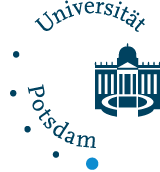Flexibility matters: Interplay between trait diversity and ecological dynamics using plankton communities as model systems
Contact persons: Prof. Dr. Ursula Gaedke, Dr. Christian Guill, Dr. Toni Klauschies, Dr. Ellen van Velzen, PD Dr. Guntram Weithoff, Laurie Wojcik
The current decline in biodiversity reduces the capability of populations and communities to adjust to the accelerating environmental and climatic changes. This may lead to extinctions and a further decline in biodiversity. We aim to improve our understanding of this important but understudied feedback loop by accounting for the biodiversity-related ability of populations and communities to adjust their properties (functional traits) to altered abiotic and biotic conditions. For example, increased grazing may select for less edible, but slower growing algae, leading to a decrease in the overall edibility of algae. This, in turn, dampens the reduction of algal biomass by grazing and influences the biomass and species composition of herbivores; e.g. the share of herbivorous species able to exploit less edible algae may increase. This reduces the advantage of being less edible, allows the edible, fast growing algae to recover, and promotes the coexistence of different algal types and, thus, biodiversity.
We study such mutually adaptive, multi-species predator-prey systems and tri-trophic food webs within the collaborative programme DynaTrait. Their temporal trait changes arise from clonal or species sorting or phenotypic plasticity and generate biomass-trait feedbacks or eco-evolutionary dynamics. We use trait-based modelling, conduct chemostat experiments with mostly phytoplankton and rotifers, and analyse long-term field observations from Lake Constance. We are particularly interested in the role of the shape of the trade-offs between traits, diversity effects on the functioning of tri-trophic food webs and their robustness against press and pulse perturbations. Current research also explores the impact of the different sources of standing trait variation, selection regimes, and speed and range of adaptation. We evaluate systematically strengths and weaknesses of different trait-based modelling approaches [more details]. We use species resolved, long-term, high frequency measurements of the entire plankton food web of Lake Constance to test the realism of model assumptions and results, and to better understand the drivers of seasonal plankton dynamics using trait-based approaches.
Our goal is to improve our predictive power on how biodiversity affects ecological dynamics and responses to environmental changes and perturbations to mitigate negative human impacts. We reconsider classical “well-established” theoretical concepts and experimentally test mechanisms maintaining biodiversity that can then be implemented in (applied, forecasting) models to improve their validity.
Related experiments are also conducted by Prof. Dr. Lutz Becks (Univ. Konstanz), Dr. Stefanie Moorthi (Univ. Oldenburg), Prof. Dr. Markus Weitere (UfZ Magdeburg), Prof. Dr. Thomas Berendonk (TU Dresden) and Prof. Dr. Ralph Tollrian (Univ. Bochum) with whom we closely collaborate within the DFG Priority Programme 1704 “DynaTrait”.

